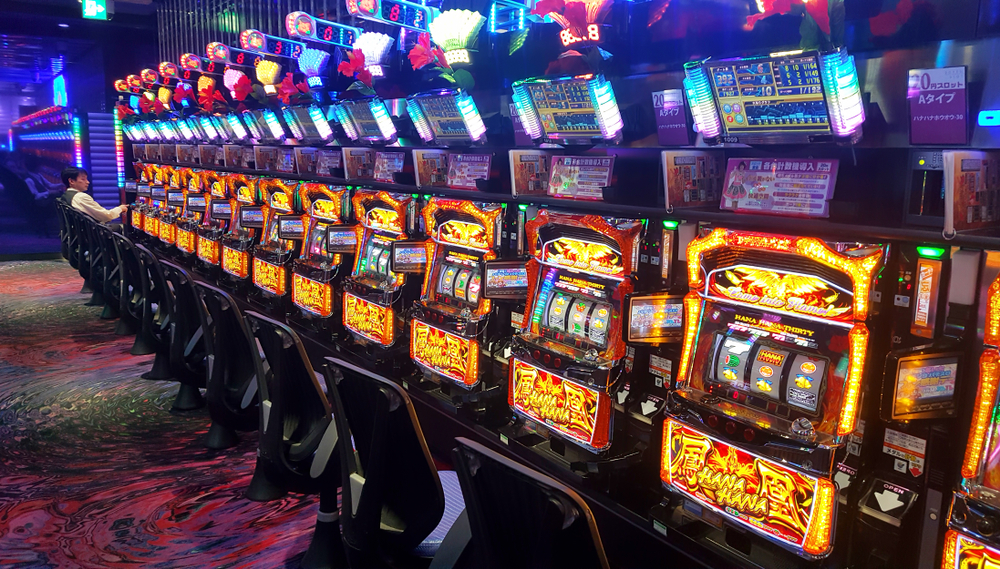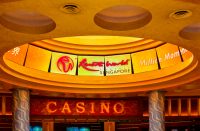
According to a $120,000 study released August 13th by the Union Gaming Analytics for the Illinois Gaming Board none of the five potential casino sites in Chicago is “financially feasible” because of the city’s tax and fee structure.
Pritzker’s gaming expansion bill, in danger to not produce effects

In July, Illinois Governor J.B. Pritzker signed into law the gaming expansion bill, which allowed for the establishment of six new land-based casinos, including a major one in Chicago.
This last one could turn out to be the highest-grossing casino in the state, but, as the study underlines, the current high taxes would cause it to struggle for a low profit.
The report, released August 13th, said the main concern was a special privilege tax the casino would have to pay to the city for the right to do business in Chicago.
“We would also expect any such proposal to be dependent on either material changes to, or abatement of, the City of Chicago privilege tax of one-third of adjusted gross receipts, and potentially the backward-looking reconciliation fee,” the report said.
“While not all of the tax ‘savings’ would drop to the bottom line in the event the special privilege tax is rescinded, most of it would. In this scenario, and while the casino would certainly allocate some of the savings to, for example, increased marketing efforts, the lack of the special privilege tax would allow a casino to operate with margins broadly in line with the in-state peers.”
A future Chicago casino would only make a 1-2% annual return

Union Gaming visited the five sites — four on the South side and one on the West side — selected by the city of Chicago for a future casino.
None of them were ideal, the advisory company reported, but it did not really matter, since, regardless of the chosen location, “the onerous tax and fee structure” in Chicago would render the business useless.
“The current regulatory construct, namely the highest effective gaming tax and fee structure in the US makes any casino project – regardless of location – generally not financially feasible,” the study said.
The total tax a Chicago casino would have to pay, according to the study, amounts to a whopping 72 percent, 39 percent on revenue and another 33.3 percent the privilege tax for operating within the city.
Compared to other reported earnings of Illinois casinos, which Union Gaming examined and found to be between 19.2 percent and 26.7 percent, before interest, tax, depreciation and amortization, a Chicago casino would simply have to pay too much, due to the privilege tax, to render it profitable.
Any Chicago casino would be able to make at best a 1-2 percent annual return, given the current amount of taxation, a margin which would be too low, according to the study, for any operator to conduct a successful business.
“We believe a reasonable casino developer would not move forward with a greenfield casino project that has, at best, a low single-digit profit margin,” the study said.
Of course, nobody would invest in such a casino, which, even if it was structured to make a profit from non-gaming amenities, would still only make “a few pennies on the dollar,” according to the study.
A state-owned casino could be a solution, the study said

There might still be a solution, the report mentioned, and that would be a city-owned casino. But, of course, this means the whole idea needs to go back to the drawing board.
Sports betting will also be legal in Illinois, according to the gaming expansion bill, but a regulatory framework still has to be created by the state gaming commission and a date for the first legal sports bets to be placed is still unknown.
The neighbour states of Iowa and Indiana both have planned to have legal sports betting in place before the start of the NFL season.
Meanwhile, Ameristar Casino in East Chicago, located 5 miles from the Illinois border and 20 miles from downtown Chicago, has been issued a temporary sports betting permit in Indiana.
So, competition is knocking on the door.
The house might always win in the gambling world, but, apparently, not if it is built in Chicago, and the consequences might be costly for the entire community.
Revenue from a Chicago casino would help pay for a $45 billion statewide infrastructure plan

As it appears now, without some tax adjustments, the statewide gambling expansion package Gov. J.B. Pritzker wants to count among his legislative achievements won’t be able to support the taxes and fees lawmakers impose on it.
The stakes are much higher than a casino operator making profit.
Revenue from a Chicago casino, which has the potential to bring in more money than any other casino in the state, is part of the lawmakers’ plan to pay for a $45 billion statewide infrastructure plan.
So, even though the rest of Illinois usually does not care much for what happens in Chicago, now all aspects of the situation should be carefully considered.
City and state officials have been trying for years to get a casino in Chicago.
But after the Union Gaming Analytics report, the math just doesn’t add up, at least not in the projected form.
If the casino doesn’t bring in the expected revenue, or fails to get off the ground, it could affect infrastructure projects across the state.
So, a solution needs to be found, whether it is reducing the privilege fee in Chicago or agreeing to a city-owned casino.









